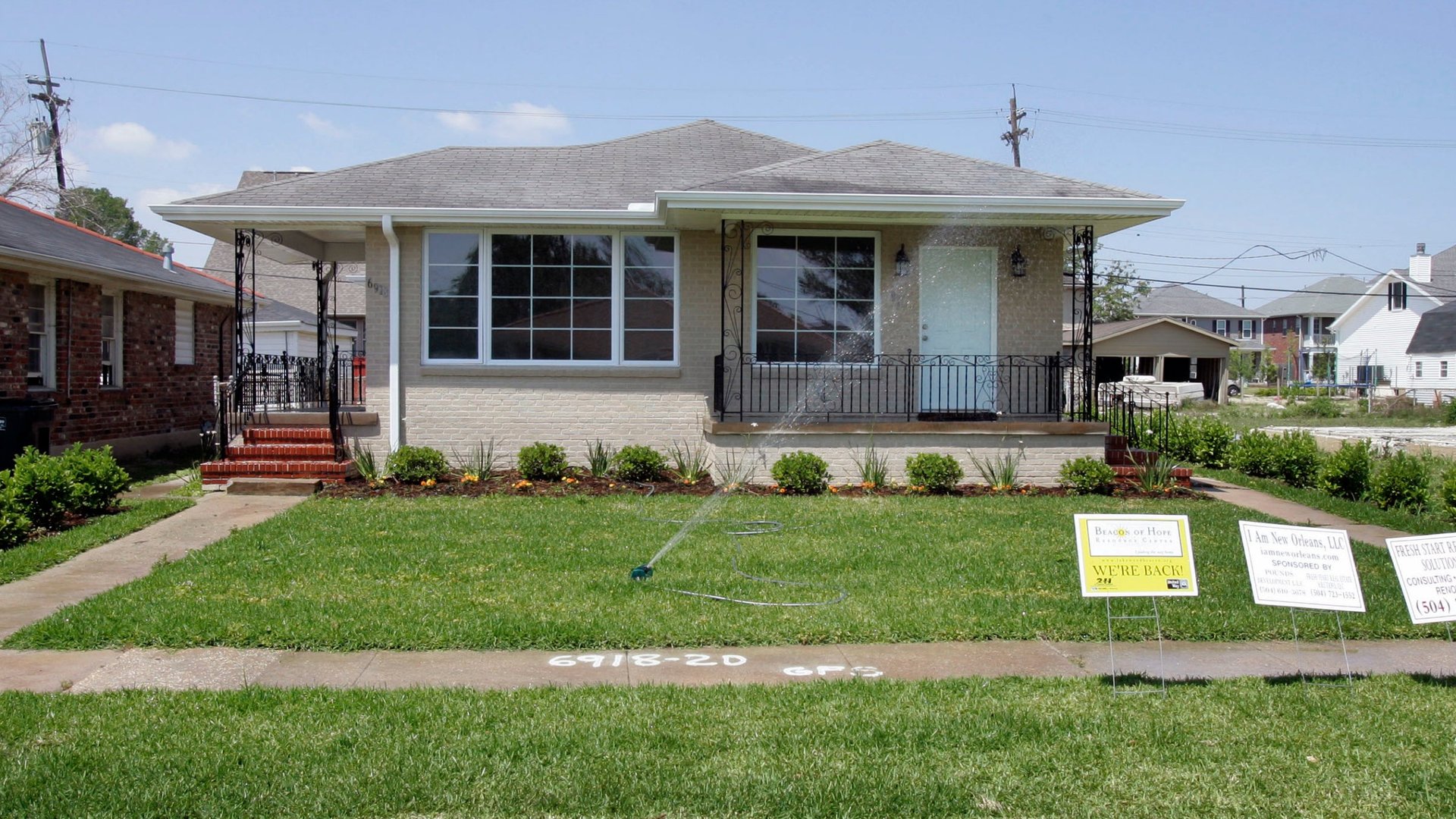American wealth isn’t even half of what it was before the big crash
During the Great Recession, middle class Americans saw their personal wealth cut in half to a roughly 40-year low. So how are their finances faring now, all these years into the recovery?


During the Great Recession, middle class Americans saw their personal wealth cut in half to a roughly 40-year low. So how are their finances faring now, all these years into the recovery?
They’ve barely recovered, at least judging by a recent report from the Federal Reserve Bank of St. Louis. It finds that adjusted for inflation, average net worth—the value of what households own minus their debts—is still far below its pre-recession peak. Through the end of 2012, families had recouped less than half of what they lost, as shown by the teal line below.
But for most, the recovery has been even more anemic than the average suggests. As the Fed’s report notes, our roaring stock market has been responsible for 62 percent of all wealth gains since the recession—and stocks are overwhelmingly owned by rich. Middle class Americans, on the other hand, tend to store up most of their wealth in their homes. That’s why the housing bust was such a catastrophe for so much of the country.
Most households saw the one major asset they own plummet in value.
Some people would argue that wealth from rising home prices during the bubble was illusory to begin with. And in a sense they’d be right. But researchers now tend to agree that there’s a significant “wealth effect,” related to housing that’s important to the economy. When values go up, consumers spend more, in part because they can borrow against the rising value of their property. Economists Amir Sufi and Atif Mian calculate, for instance, that homeowners stripped $1.25 trillion out of their houses during the bubble. But when prices fall, families also cut back their spending rapidly. That’s one of the factors which likely exacerbated the recession.
It’s unclear whether a housing recovery will give the same spark to economy as it did during the boom years, in part because Americans have become less likely to use their houses as piggy banks. But it still seems reasonable to guess that until the middle class sees its finances return to something close to their former health—either through cutting down on debt or thanks to appreciating assets—our recovery will keep unfolding in slow motion.
Jordan Weissmann is an associate editor at The Atlantic. He has written for a number of publications, including The Washington Post and The National Law Journal.